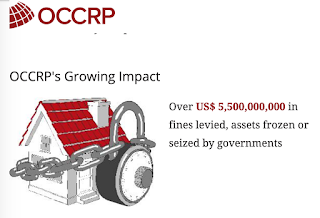Between fines and recovered funds, journalists get results
Lately a couple of us here at the University of Navarra have been looking for models of high-quality journalism that are sustainable. As it turns out, many of the best news organizations that are thriving are doing investigative journalism.Readers like this type of journalism, which holds the powerful accountable for their actions, makes them responsible for serving the public rather than themselves.
In a 2016 article, two leaders of global investigative journalism organizations made the case that investigative journalism actually has a great return on investment, ROI.
Versión en español
"Over the years [Organized Crime and Corruption Reporting Project (OCCRP)] has accepted $5 million in funding from the U.S. and other governments. The return on that funding? With $2.8 billion recovered in fines and seized assets by various governments, the payoff is over 56,000 percent (or a 560-fold return)".
The authors of that article were David E. Kaplan, executive director of the Global Investigative Journalism Network, and Drew Sullivan, one of the founders of OCCRP.


